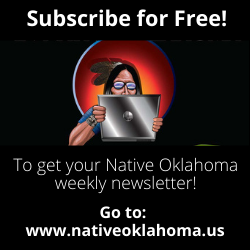

Oklahoma governor argues tribal tags a fairness issue
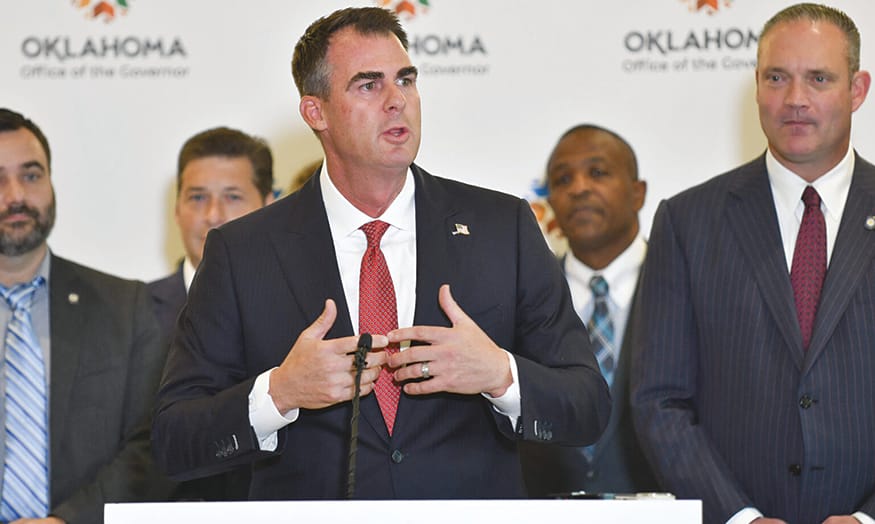
By: Carmen Foreman, Oklahoma Voice
OKLAHOMA CITY – Gov. Kevin Stitt said he didn’t know an Oklahoma Highway Patrol trooper was going to ticket an Otoe-Missouria citizen for having a tribal license plate while living outside her tribe’s boundaries, but that he “100%” supports the action.
In an interview, Stitt said he did not direct the Oklahoma Department of Public Safety to crack down on some drivers with tribal license plates, but he did tell the agency to “just enforce the law.”
That directive, Stitt said, came after Turnpike Authority officials told him this summer the state could not collect nearly $5 million in turnpike fees over a two-month period because a new cashless tolling system can’t read license plates issued by tribes.
The Oklahoma Highway Patrol recently started ticketing Indigenous citizens who have tribal tags but don’t live within their nation’s boundaries – an apparent change in enforcement that spurred confusion and outrage from many tribal citizens. Troopers are not pulling people over solely because of their license plates but are addressing the tag issue if a driver is pulled over for another reason, tribal officials have said.
An agency spokesperson said troopers are following a 30-year-old U.S. Supreme Court ruling that says tribes can issue license plates only to its citizens who “principally garage” their vehicle on the tribe’s reservation.
Stitt calls for revenue split
Now, Stitt wants all Oklahoma tribes that issue their own license plates to compact with the state to split tribal tag revenue. He said it’s “fundamentally unfair” that non-Native citizens pay car tag fees to the state when Indigenous citizens with tribal tags living outside their tribe’s boundaries don’t pay the state anything.
“We all drive on the same roads,” Stitt said. “And in my opinion, we should all pay the same tag, title and tax. It’s pretty simple.”
“When you look at the Otoe-Missouria tribe or the Apache or the Creek or Seminole, any of those tags, they’re literally just printing the tag and the state’s not receiving one dime of revenue.”
Oklahoma’s tribes have a multibillion-dollar economic impact in the state and contribute funds to local road projects, schools, health care initiatives and more.
The Choctaw and Chickasaw nations already have compacts with the state that allow any of their tribal citizens, regardless of where they live, to have tribal license plates issued by Service Oklahoma.
The Cherokee Nation issues its own license plates to members across the state and maintains it has a valid compact with the state to do so. But Stitt, a member of the Cherokee Nation, contends his tribe’s compact expired and is no longer valid, despite legislation passed this year that allowed some tribes to extend their motor vehicle registration compacts until December 2024.
“Gov. Stitt’s position that Cherokee citizens living outside of the Cherokee Nation reservation unlawfully operate vehicles with Cherokee Nation tags is, frankly, ignorant and unquestionably illegal,” Cherokee Nation Principal Chief Chuck Hoskin Jr. said in a statement.
Hoskin and other tribal leaders have hinted they may pursue litigation as a result of the increased enforcement of tribal tag protocols.
Stitt said he’s not worried about possible lawsuits.
“We’re following the law,” he said.
Stitt said several tribes have reached out to talk about compacting on motor vehicle registrations in light of increased enforcement efforts, but he declined to name them.
The governor said he wants to make it clear through compacts that Native Americans with tribal tags living off their tribe’s lands will have to pay the same vehicle registration fees as non-Native Oklahomans. Indigenous citizens living on their tribe’s reservation won’t owe the state anything to register their vehicle through their tribe, Stitt said.
Attorney General Gentner Drummond may issue legal guidance on tribal tag issues that will encourage the tribes to compact with the state, said spokesperson Phil Bacharach.
House Democrats criticized Stitt for continuing to clash with the tribes.
“This is another attempt by the governor to undermine our tribal leaders and nations as he continues to demonstrate his inability to work with them,” the Democrats said in a joint statement. “If he has valid concerns, he should lead by having discussions with tribal leaders instead of creating unnecessary chaos that is harmful and unproductive.”
Stitt has had a contentious relationship with many Oklahoma tribes since he unsuccessfully pushed to renegotiate the state’s tribal gaming compacts.
The governor also expressed safety concerns about law enforcement officers not having tribal vehicle registration information when making traffic stops.
“The most dangerous part of a ticket stop is pulling up to that car, not knowing who’s in it, not knowing what crime they’ve committed, not knowing if there’s any felons, or if it (the vehicle) was stolen,” Stitt said. “We have no idea who they are.”
Public Safety Commissioner Tim Tipton told state senators in July the number of unregistered tribal tags was at “a critical level” and that the Highway Patrol doesn’t receive registration details on many tribal license plates.
Records from the Department of Public Safety show 24 tribes have the ability to upload tribal vehicle registration information to the Oklahoma Law Enforcement Telecommunications System, which officers check during traffic stops. The Chickasaw and Choctaw nations also provide that information through their partnerships with the state.
The state cannot confirm the accuracy or timeliness of the vehicle registration information reported by tribes, said agency spokesperson Sarah Stewart.
Representatives from the Cherokee Nation and other tribes said they have long uploaded all vehicle registration information into the system.
“Law enforcement have reported no challenges in accessing this information during traffic stops,” said Cherokee Nation spokesperson Julie Hubbard.
Oklahoma Voice provides independent, nonpartisan reporting that holds officials accountable and elevates the voices of those too often sidelined by the political process.
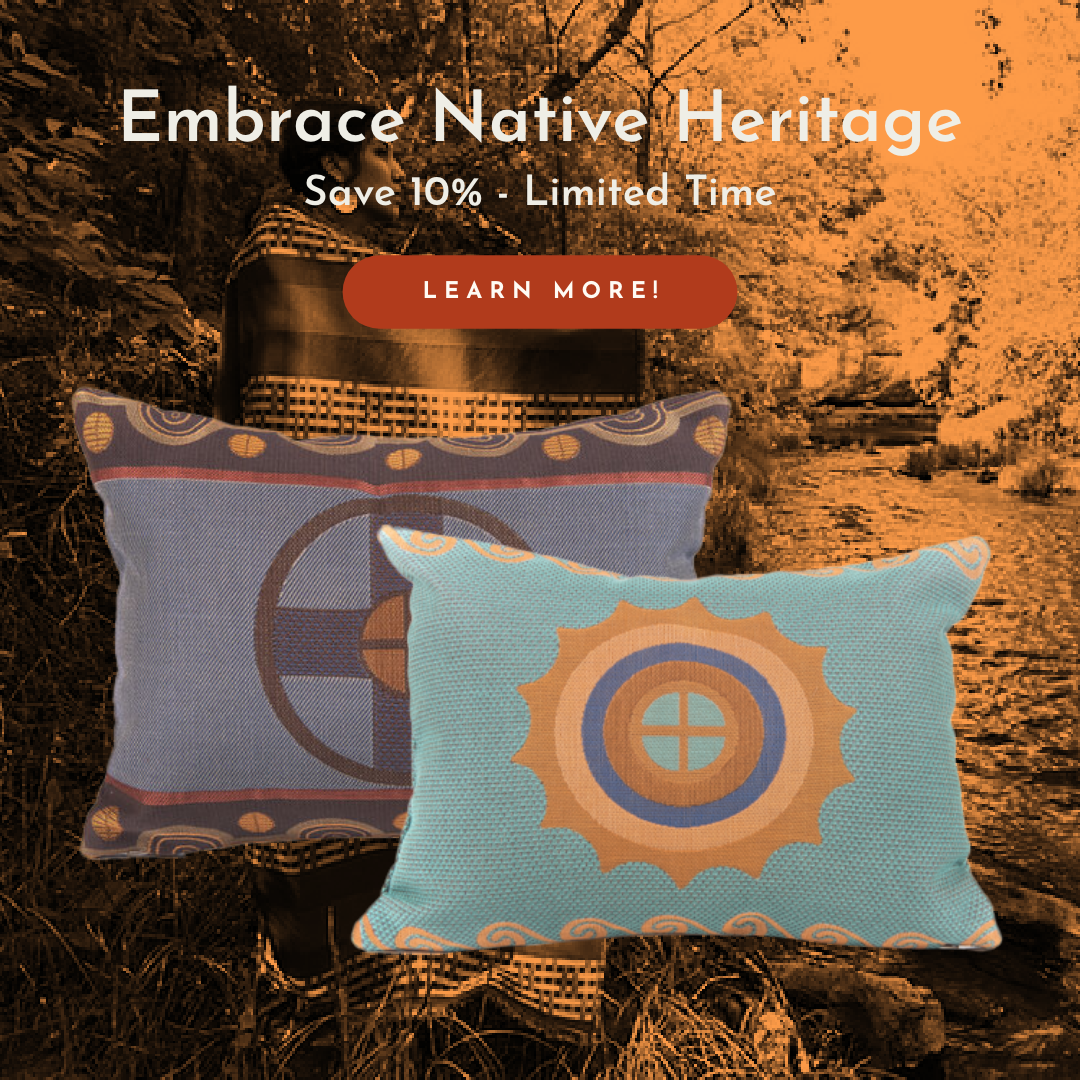
How an Oklahoma DA and Seminole Nation worked together to combat gang violence

By Max Bryan
ARI SHAPIRO, HOST:
Let's look at how one Supreme Court decision rippled out through a small town in Oklahoma. When the town experienced a rash of gang violence, state prosecutors were hamstrung because the town sits on Native American land. Max Bryan from member station KWGS in Tulsa reports the local district attorney banked on his relationship with the local tribe to fight the violence.
(SOUNDBITE OF ARCHIVED RECORDING)
JEREMY FULTZ: (Speaking Seminole). It's not too bad outside, Delaney. Oh, how are you doing today?
MAX BRYAN, BYLINE: That's Jeremy Fultz opening the Seminole Nation Oklahoma radio show once a week. Fultz and his co-hosts talk about community events and read announcements for members of the Seminole Nation in central Oklahoma. And on October 31, Fultz took a break talking about Halloween festivities to read this statement.
(SOUNDBITE OF ARCHIVED RECORDING)
FULTZ: The Seminole Nation Lighthorse Police Department has been actively investigating several major crimes in the city of Wewoka. These crimes are related to gang activities between two gangs.
BRYAN: For weeks, Wewoka, a central Oklahoma town of 3,000, saw several shootings, including a homicide, allegedly tied to gangs. One of the gangs is primarily Indigenous. The violence led to the cancellation of a popular festival. Wewoka public schools canceled class for a day, and some people in Wewoka, like local pastor Joe Ward, weren't taking any chances.
JOE WARD: We'll have a code word in our bulletin that everybody in here will know that they can - if I ever say it from the pulpit, because I can see the doors, unless they're told otherwise, they're going to be hitting the floor and getting out of view of whoever's coming in.
BRYAN: In early November, six suspects in connection with the violence were arrested. But prosecuting gang members can be tricky in this part of the country. Because of a 2020 Supreme Court decision, the local district attorney cannot prosecute any Indigenous members of the two gangs. In McGirt v. Oklahoma, the high court ruled eastern Oklahoma, including Wewoka, is a Native American reservation, so only tribal and federal law applies to Indigenous people. And for District Attorney Erik Johnson, that means building relationships within the Seminole tribe.
ERIK JOHNSON: We all have the same interests, and so it's just finding that common ground.
BRYAN: Johnson's willingness to work with the tribe contrasts to the attitude of Oklahoma Governor Kevin Stitt, who has openly opposed the Supreme Court decision. His opposition has led to a fractured relationship with the tribes as the state and its local prosecutors can no longer charge Native residents with crimes. But at the Seminole state of the nation address this year, Assistant Principal Chief Brian Palmer said his tribe can look after itself.
(SOUNDBITE OF ARCHIVED RECORDING)
BRIAN PALMER: Our courts - they're able to protect us. We are prosecuting everything from the worst crimes of rape and murder down to a traffic ticket, and that is the responsible thing to do. That's the thing to do for our people.
BRYAN: And in this latest outbreak of gang violence, they have worked with Johnson and the feds. Johnson points out that tribal courts are only capable of sentencing defendants to up to three years in prison, which means serious crimes are better handled by the federal courts. Johnson says to keep his community safe, it's critical to work with the tribes and the feds.
JOHNSON: With the relationships we have in Seminole County and specifically in Wewoka with all the federal assets and my cooperation that I've received from the U.S. attorney's office, I don't feel like I'm going to have any challenges like that.
BRYAN: Since the six suspects were apprehended, things have started to calm down in Wewoka, and authorities say more arrests are possible. For NPR News, I'm Max Bryan in Tulsa.
(SOUNDBITE OF JUNGLE FIRE'S "FIREWALKER") Transcript provided by NPR, Copyright NPR.
NPR transcripts are created on a rush deadline by an NPR contractor. This text may not be in its final form and may be updated or revised in the future. Accuracy and availability may vary. The authoritative record of NPR’s programming is the audio record.
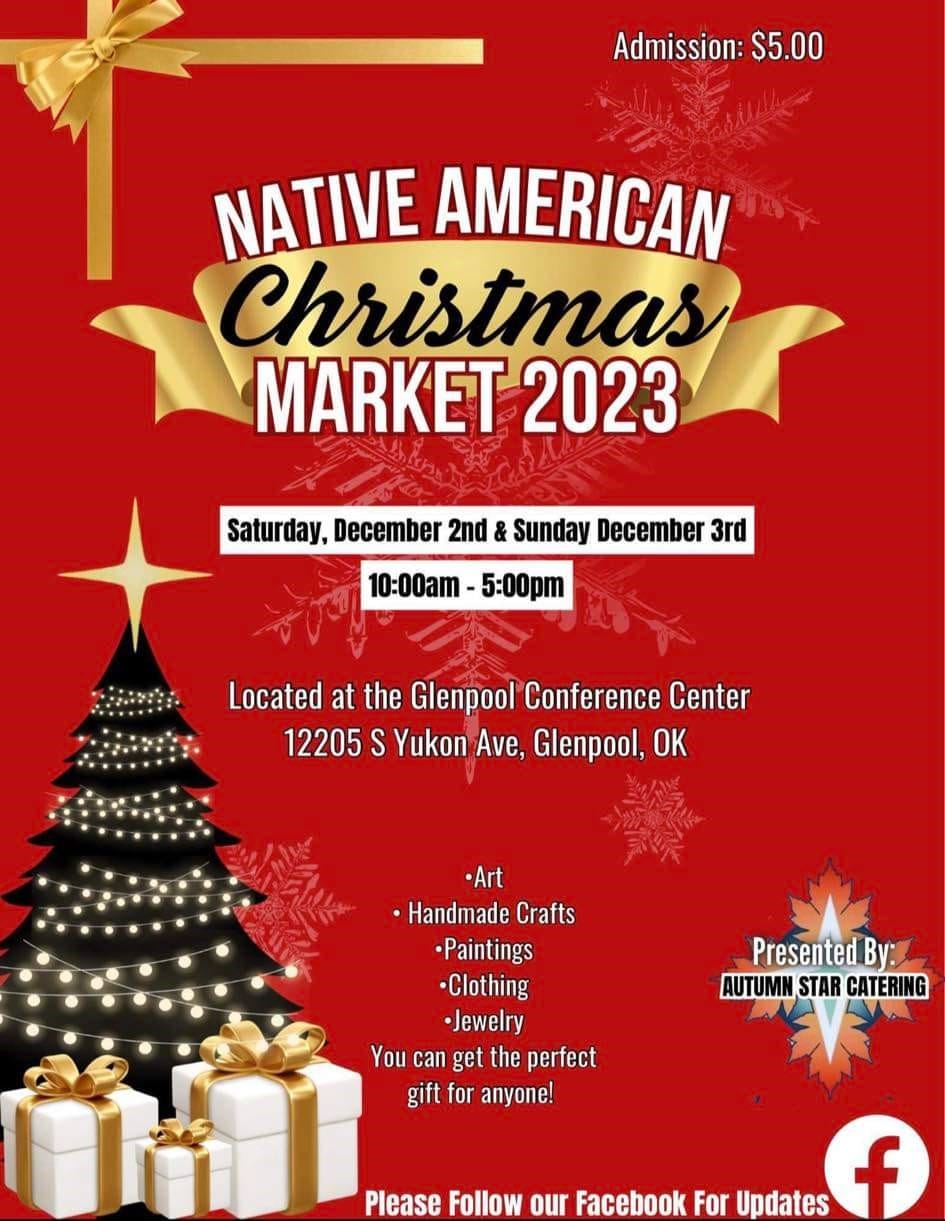
Q&A with Audrey Kiefer of Axiom Space
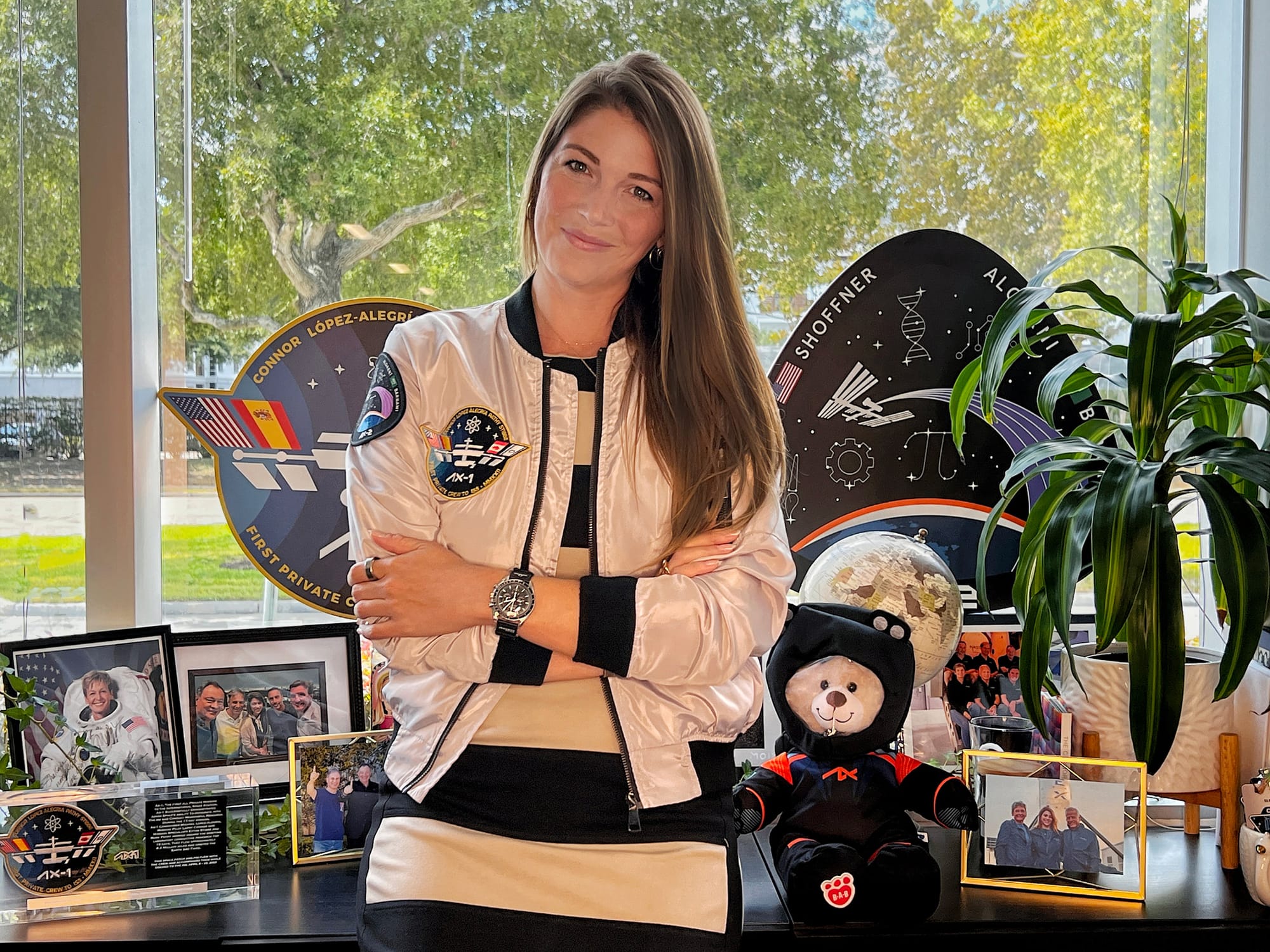
By: Mary Leaver, Citizen Potawatomi Nation Public Information Department
Citizen Potawatomi Nation tribal member Audrey Kiefer is helping people reach for the stars with Axiom Space, the leading provider of human spaceflight services and developer of human-rated space infrastructure, according to their website.
The company operates end-to-end missions to the International Space Station while developing Axiom Station, an eventual successor to the ISS. Axiom Space is also known for building next-generation spacesuits.
Kiefer, a descendant of the Theresa Richstatter family, is the senior director of customer experience operations. She shared her insights during a Q&A with the Hownikan:
Q: Tell us about yourself and your position:
A: “My name is Audrey Kiefer. Axiom Space is not only building the world’s first commercial space station and the spacesuit that will be worn by the first woman who steps on the lunar surface, but we also send private and government astronauts to the International Space Station to conduct science and outreach.”
“I lead a group of individuals who care for our astronauts, from the moment a contract is signed until after they return to Earth. We manage their schedules, travel, on-orbit cargo, family support and overall experience preparing them for their mission to space.”
Q: Tell us about your family and upbringing:
A: “I grew up outside of Kansas City, Missouri, and perhaps like many of my Citizen Potawatomi Nation brothers and sisters, I didn’t have a privileged upbringing. In fact, quite the contrary; for the better part of two years, my mother and I survived on food stamps and the generosity of her friends offering a roof over our heads. Despite our struggles, I am thankful to have two parents who supported my ambitions from an early age.”
“As kids do, my interests often shifted between dinosaurs, Egyptology, space, airplanes, extreme weather, and so on. I learned early that every career path that caught my attention required a college degree. Coming from a family where no one had attended college, I had to pay attention in school to maintain my grades. As I grew older, I sought advice from the teachers I admired who recommended that I also get involved in extra-curricular activities. I did, but I had to fit them in around my work schedule.”
“I started working at 15 and learned when you combine work ethic and a servant’s heart, you’ll be rewarded. I earned higher tips and more corporate recognition than any of my peers.”
“I learned to balance a full school day with weighted classes, the presidency of two clubs, student council, show choir and a part-time job. By the time I graduated from high school, I had a spectacular resume, several scholarships and an admission letter to Embry-Riddle Aeronautical University in Florida.”
“The moment that letter arrived, I knew it could change my life. With the encouragement from my parents and teacher-mentors, I made the first major uncomfortable decision in my life. I packed up my old Ford Explorer and drove to Florida to start this chapter.”
Q: How did you get professional experience? Did you have any challenges?
A: “Graduating with a technical degree in meteorology and a minor in aviation business during the Great Recession with over $100,000 in student debt was the first adult challenge that I had to face. Bills were coming due, and I needed to find an income fast.”
“After a grueling search, I found a part-time meteorology gig at a Houston non-profit, paying close to minimum wage. I took a night job at a restaurant so that I could pay for my small apartment and student loans. The meteorology gig was hardly what I had in mind, so I resumed my job hunt in my spare time.”
“After several discouraging months of searching, I opened a beer that I recently learned about at work, considered its complexity and my admiration for it, and typed ‘beer’ into the Indeed.com search engine. It was then that my very surprising career in sales began.”
“Without a speck of sales experience — it terrified me, honestly — I began working for a broker selling independent spirits and craft beer to restaurants and stores. It’s true what they say, with enough practice, anyone can learn any skill. I had tremors before walking in to speak with a potential account. But, the more confident I was in the product, the more successful I was.”
“I caught the attention of one of our craft beer suppliers out of California. Like many other small breweries, they couldn’t afford to have full-time sales representatives, so they used brokers to represent their product around the country.”
“This is where I took another big risk and made a strategic change in my career. I booked a flight to San Francisco, drove the three and a half hours north to where they were located, sat across from the brewmaster and president and told them I could sell enough of their brand across Texas to make up for the salary that I wanted.”
Q: How did your risk pay off?
“The next four and a half years allowed me to hone my skills. I realized that sales is all about the relationships you make. A common misconception is that you need to be a great talker to be a great salesman, when the truth is that you need to be a great listener. I grew the brand 400% and Texas became the top market in profitability.”
“My first raise came when the president approached me and said, ‘Audrey, do you know how much you’ve made for this company in the last year?’ To my embarrassment, I did not. He gave me the number along with a very big raise. I learned a lesson. Always know and be able to communicate the value you’re bringing to a company. You shouldn’t expect others to know it for you, and you can’t champion yourself without it.”
Q: How did you make the shift to Axiom Space?
“It was difficult to leave the brewery to follow my aviation bug but I worked in business development for a local company for a couple of years. I then set out on my own and started two companies: a technology company for which I raised $200,000, and a private aviation marketing and consulting company to support me while building the first.”
“During the height of COVID in spring of 2020, I received a call from an industry friend that I met during a business conference a few years prior. He told me about Axiom Space and said that they were looking for someone to who could help serve as ‘concierge style’ support in Houston to their high-net worth customers on their first private commercial mission to space.”
“I hadn’t been interested in space since I was a child, but I wanted to be part of it. I love the start-up environment, the hustle, the uncertainty and the ability to make big impacts from any position.”
“I met for coffee with a woman from marketing and received a call from the highly decorated chief astronaut explaining the position to me. I applied and interviewed with the leadership team. I still remember the day the CEO walked into the room and shook my hand with congratulations.”
Q: Where is most of your focus today?
“I negotiated everything from the scope of my role to my new title of customer experience manager. I wanted to ensure that I had a voice to speak for the customers, soon-to-be-astronauts, across their entire journey. It turns out, not coming from a space background was an advantage. I had a new perspective on customer service and the future of commercial space that many of my colleagues did not.”
“Commercial space was and is still a new industry, and prior to this moment in history, there were only a handful of private citizens that had been to space, and zero fully private missions by a private company. The type of customers that we attracted had very high expectations of their experience with us. When people are paying to go to space, instead of being paid to go, it requires a complete mental shift for those providing that service.”
Q: What was your biggest challenge?
“The biggest challenge I faced was the balancing act of respecting and learning from government-career space executives and giving a voice to my values as the only expert that has worked closely with high-net worth clients. I was also the youngest and a female at the leadership table.”
“I can say that sending the first-ever fully private crew to the International Space Station was the most challenging thing that I have done, but it was also the most rewarding. I was regarded as the ‘bull in the china shop’ on more than one occasion. I’m proud that I remained headstrong in my commitment to excellence. I had to gain the trust of not only our customers, but also of the leadership team and my peers. Customer satisfaction is critical to a successful commercial company.”
Q: Tell us about your most recent work. Would Hownikan readers be familiar with it?
“Axiom Space recently unveiled the Extravehicular Mobility Unit to provide increased flexibility, greater protection to withstand the harsh environment and specialized tools to accomplish exploration needs and expand scientific opportunities,” according to the Axiom Space website.
“Before the public release of our Axiom Space spacesuit, the AxEVA suit, I called a friend working in Hollywood on the show For All Mankind. I asked if he could recommend someone to assist us with the cover layer worn over the suit to protect the proprietary components. He connected me with the costume designer for the show.”
“Together, Axiom Space and costume designer Esther Marquis collaborated on the suit’s cover layer for display purposes to conceal the suit’s proprietary design, using the Axiom Space logo and brand colors. The collaboration was well-received by the media. Some stories about the suit highlighted the courageous spirit of Axiom Space when they hired a Hollywood designer from a hit space-themed TV show.”
“For our second private spaceflight mission, I approached Build-A-Bear and asked if they would be interested in making a stuffed-animal sized version of the suit. My goal was to send a space“For our second private spaceflight mission, I approached Build-A-Bear and asked if they would be interested in making a stuffed-animal sized version of the suit. My goal was to send a spacesuit-wearing bear on our mission, then sell the suit in stores around the country to inspire and educate children about space. It was a success, and we’re still proud partners with them today.”
Q: What advice would you offer others?
“One important piece of advice is to remember your heritage when choosing a school. Many prestigious universities will offer full-term scholarships for Native Americans. I chose a private school and had to supplement my tuition with student loans.”
“I owe a great deal to the people that I’ve hired at Axiom Space. Service is a thankless job, but it manifests the most selfless hearts. No matter the obstacles, we do what it takes to get the job done.”
“I’d like to offer what I’ve learned to others like women, single-mothers and Native Americans. There have been over 600 people sent to orbit the Earth, and we only just witnessed the first Native American woman, Nicole Mann, launch to space in October of 2022. We can do better as a nation, an ethnicity and a species.”
“Robert Allen said, ‘Everything you want is just outside your comfort zone.’ I wanted to share the moments in my life when I decided to be comfortable with being uncomfortable. I took risks, fell and stood back up, came to peace with the fact that not everyone is going to appreciate when you stand up for your values, and stopped apologizing for chasing goals that the people around me didn’t understand.”
“I encourage others to pursue education, seek advice from teachers or mentors, always ask or the answer will be ‘no,’ learn to communicate your value, learn to listen, give thanks often, and don’t underestimate the power of your unique perspective. I invite anyone seeking career advice to reach out to me.”
For more information, visit the Axiom Space website.
suit-wearing bear on our mission, then sell the suit in stores around the country to inspire and educate children about space. It was a success, and we’re still proud partners with them today.”
Q: What advice would you offer others?
“One important piece of advice is to remember your heritage when choosing a school. Many prestigious universities will offer full-term scholarships for Native Americans. I chose a private school and had to supplement my tuition with student loans.”
“I owe a great deal to the people that I’ve hired at Axiom Space. Service is a thankless job, but it manifests the most selfless hearts. No matter the obstacles, we do what it takes to get the job done.”
“I’d like to offer what I’ve learned to others like women, single-mothers and Native Americans. There have been over 600 people sent to orbit the Earth, and we only just witnessed the first Native American woman, Nicole Mann, launch to space in October of 2022. We can do better as a nation, an ethnicity and a species.”
“Robert Allen said, ‘Everything you want is just outside your comfort zone.’ I wanted to share the moments in my life when I decided to be comfortable with being uncomfortable. I took risks, fell and stood back up, came to peace with the fact that not everyone is going to appreciate when you stand up for your values, and stopped apologizing for chasing goals that the people around me didn’t understand.”
“I encourage others to pursue education, seek advice from teachers or mentors, always ask or the answer will be ‘no,’ learn to communicate your value, learn to listen, give thanks often, and don’t underestimate the power of your unique perspective. I invite anyone seeking career advice to reach out to me.”
For more information, visit the Axiom Space website.

Chickasaw actress ready for ‘Peter Pan’ spotlight
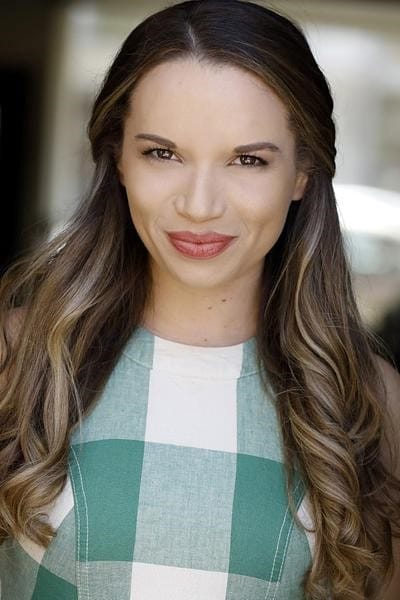
HUNTINGTON BEACH, Calif. – It has been a hard knock life for singer, dancer and actress Cheyenne Omani.
In February 2024, she will embrace a new role on the traveling Broadway production of “Peter Pan,” after spending more than a year working with children in the national production of “Annie.”
Through the 2023 season of “Annie,” Omani worked as a “swing” and covered the seven children who formed the troupe of multifaceted orphans who are a critical part of the show. A “swing” is an understudy for specific roles, knowing lines, stage presence, dances and being able to fill in at a moment’s notice.
During the “Annie” tour, Omani also served as dance captain for the production.
While part of her job was to ensure children in the show were ready to perform, she performed roles as well in the New York City-based hit musical. She played everything from a “shoe shiner to a homeless man.”
“I loved performing and was always happy to step in if a fellow actor was out of the show due to illness or injury,” she said.
At age 27 and standing 4 feet and 9 inches tall, it was amazing how effortlessly Omani could step into a child’s role. “I’m pretty small,” she said with a giggle. She was small enough to fill in for the children on stage without the audience members noticing there was an adult blending into the orphan ensemble.
This year, Omani will learn the parts for the ensemble members and understudy the roles of Wendy and Tiger Lilly in a newly adapted production of “Peter Pan.” The show was adapted by First American playwright Larissa FastHorse.
Early Interest
Oddly enough, the first live theater production Omani saw at the tender age of 2 was “Annie.” Her Potawatomi mother, Tonya Leonard, took her hand and unwittingly introduced her daughter to the life she would pursue. Cheyenne was mesmerized. The singing, dancing and comedic performances touched her heart and soul.
“Annie” is based on the 1930s cartoon “Little Orphan Annie.” “Annie” was adopted away from an abusive orphanage by millionaire Oliver “Big Daddy” Warbucks.
It was not long after seeing “Annie” her mother enrolled her in ballet classes.
By age 11, Omani garnered her first paid acting gig in a local theater production of Charles Dickens’ “A Christmas Carol.” She played Bob Cratchit’s middle daughter, Belinda. She played the older sister to Tiny Tim, a character central to the show whose ill health and physical infirmity softens the heart of main character Ebenezer Scrooge.
“From age 2, after seeing ‘Annie’ with my mom, I knew what I wanted to do,” Omani said with determination.
It was not only live theater that tugged at Omani’s heart. She began learning guitar and wrote original music as a teenager. When she became proficient at the instrument she started a band – The Cheyenne McDonald Band – named after her Potawatomi/Chippewa grandmother, Connie McDonald
Between 2010-2014, the band produced two albums, “Get Your Attention” and “I’m On Fire.” It was a success and the band toured California performing. They traveled all over California. They were busy. They recorded three hours a day, five days a week and played three gigs a week, Omani said.
With live theater, music, dance and all of her other activities, Omani – a student enrolled in advanced placement courses since fourth grade – tested out of high school and graduated early.
She was on fire with a desire to start her performing career, she explained.
Finding Her Tribe and Ethnicity
Omani’s First American heritage was apparent with her grandmother, Connie McDonald and mother, Tonya Leonard, both citizens of the Potawatomi tribe in Mayetta, Kansas.
Her Chickasaw heritage was discovered later when she learned that her great-great-grandfather, Joseph Bynum Jr., registered with the Chickasaw Nation on the Dawes Commission rolls.
Another interesting element is her father is African American and First American.
Omani’s ethnicity is a mixture of Chickasaw, Choctaw, Potawatomi, Chippewa and African American.
She gleefully celebrates all her bloodline bonds.
She is so grateful.
“I have two First American tribal nations I can call my own,” she said.
Famed director, singer and comedian Ken Page was the first to cast Omani in her first African American role – her favorite thus far in a blossoming career – in “Ain’t Misbehavin’”.
Mr. Page is African American and First American as well, so an immediate bond existed between them.
Omani has performed in many live musicals she “loved” including “Beauty and the Beast,” “West Side Story,” “Cinderella,” “Shrek the Musical,” and “Singin’ in The Rain.”
But her favorite role was “Charlaine” in “Ain’t Misbehavin’”.
In 2022, Mr. Page directed the all-African American musical cast for the California Center for the Arts, Escondido, commonly called CCAE Theatricals.
It celebrated the music of jazz pioneer Fats Waller, composer of “Ain’t Misbehavin’” and “Honeysuckle Rose” along with about 400 other musical gems.
“Working with Ken was amazing. I felt very at home being in an all-African American cast,” Omani said. “Ken reaffirmed my belief that as a mixed performer, I can be cast in roles that recognize all of the heritages that make up who I am as a person and as a performer,” she said.
Cheyenne is a name that lets her celebrate her First American heritage and Omani – a Swahili word meaning “hope and faith” – allows her to highlight her African American bloodline as well.
Chickasaw Assistance
“I am so incredibly grateful for the Chickasaw Nation,” Omani proclaimed.
She enrolled in the Pacific Conservatory of Performing Arts in Santa Maria, California, (PCPA) with financial assistance from the Chickasaw Nation.
“I owe a great deal of my success to PCPA and to the Chickasaw Nation. At PCPA, I would start the day at 9 a.m., and my day didn’t end until about 11 p.m. I would spend eight hours in class (everything from ballet to accents/dialects) and then I would perform in a show eight times a week.”
Though the schedule was grueling, Omani said she would not have had it any other way because she was learning to do what she loved.
“I learned so much about the business of being an actor and it is where I learned how to be a swing.”
It is difficult to learn multiple roles and then to be able to pull them off with little to no rehearsal, but Omani enjoys the challenge.
The Chickasaw Nation also assisted her with tuition to a nutrition school, an education she still uses to this day to stay fit and healthy. It taught her the importance of physical activity every day and the relationship between healthy living and staying vibrant on stage.
“When you live out of a suitcase six months out of the year, maintaining your health is so important. Your body is your instrument. I don’t think I could have succeeded with the challenges of living on the road without taking those courses paid for by the Chickasaw Nation,” Omani said.
She utilizes that education every single day. She attends yoga classes before going to rehearsals because her body needs to be properly warmed up as a dancer. One role may demand a specific physical skill and the next role is completely different. Omani said, “I attempt to keep my routines as versatile and athletic as possible.”
“Annie” since age 8
The irony of how large “Annie” loomed in Omani’s life is astounding. She first saw it at age 2, and by age 8 she was performing as Molly in “Annie” for a local theater troupe.
In 2022, she was hired by Crossroads Live, a professional touring company based in Australia and Europe which expanded into American theaters.
Omani was a swing and understudy to many parts on the show. If someone got sick, it was her job to get on stage, know all the lines and all the choreography. When she joined the cast in January 2023, she had to learn all of the music and dance numbers in a week.
Interestingly, Omani finds the greatest rewards from smaller communities in smaller venues.
“Sometimes we are in a city for several weeks. We get to explore things and pick out a favorite restaurant or coffee shop. Other times, we are in a city for one night only, and it is those audiences that always seem the most grateful,” Omani observed.
Small town theater lovers are usually more excited to see a professional Broadway play, and their enthusiasm reignites a spark in all of the performers and crew members.
When Omani is not on stage, she spends a lot of time with family. “We love cooking together and going on walks. My grandmother and I are very close. I call her my BFF (Best Friend Forever),” Omani said with a smile.
Being around family recharges her battery, she said. The pandemic shut down live theaters and many artists were unemployed. Her family saw her through that until theaters began operating again, Omani pointed out.
Omani would love to explore opportunities in film.
“They have so many musical films coming out now, and I really would love to be a part of it.
“I’m ready to get back on stage,” Omani proclaimed.
